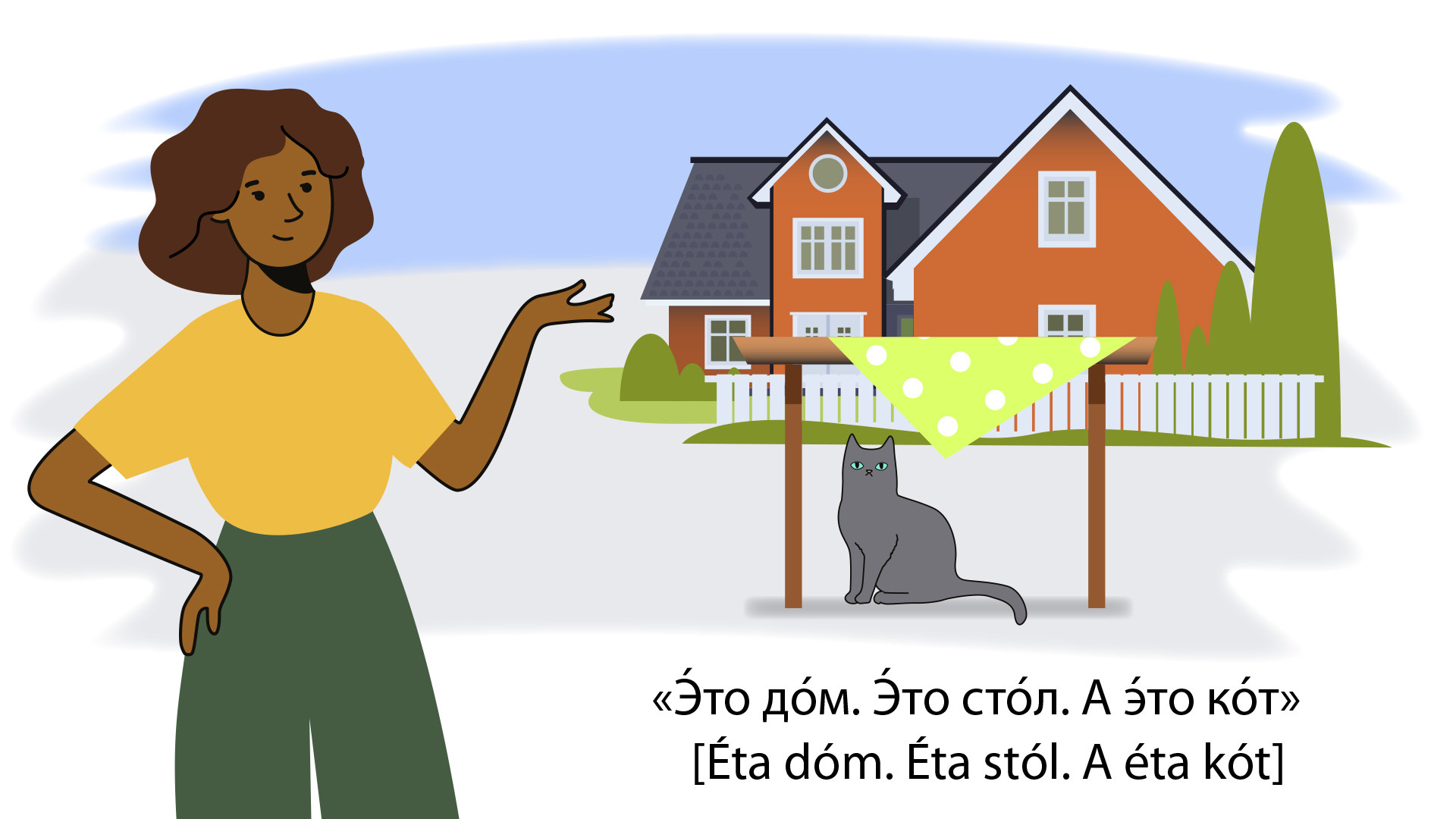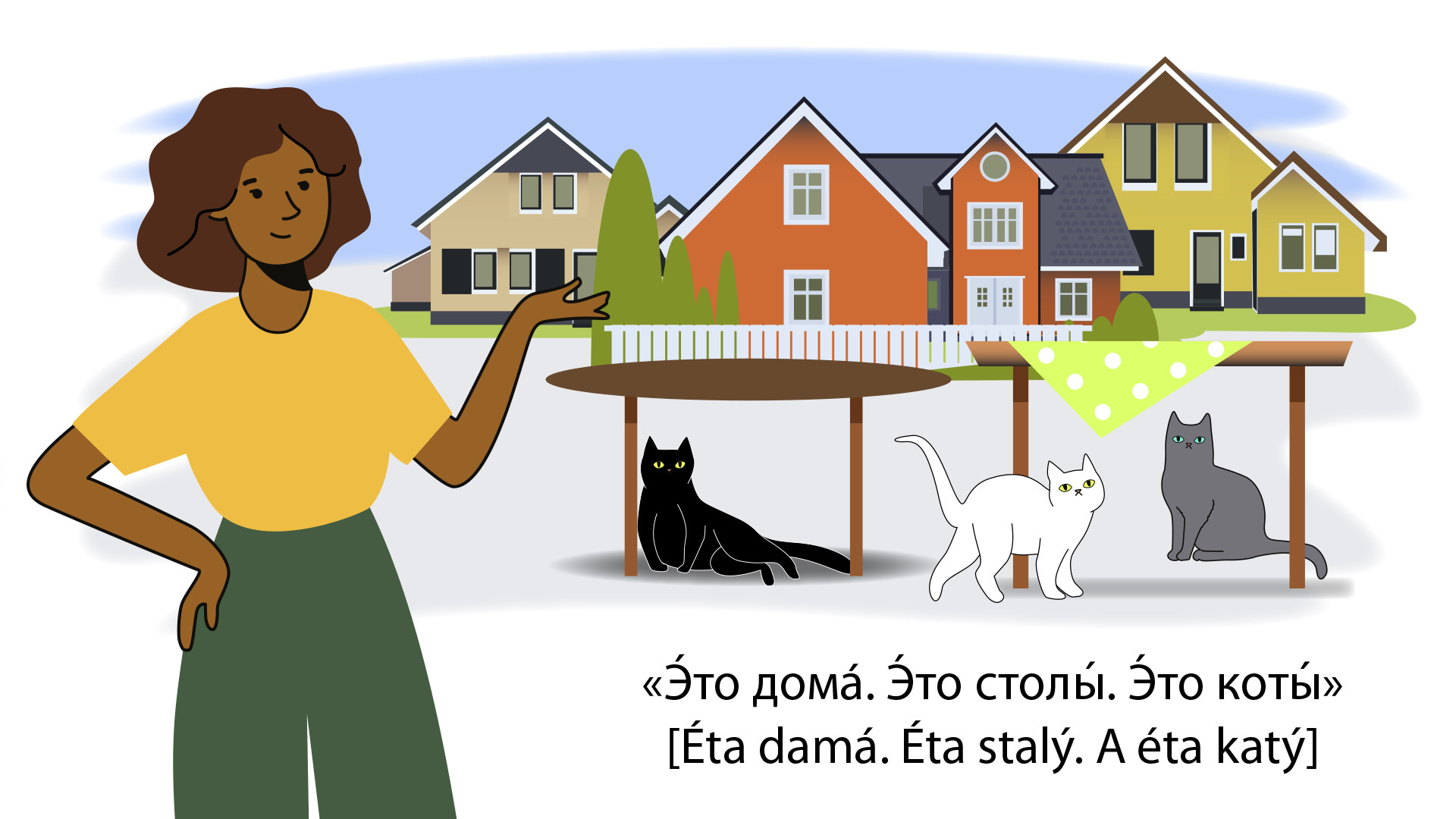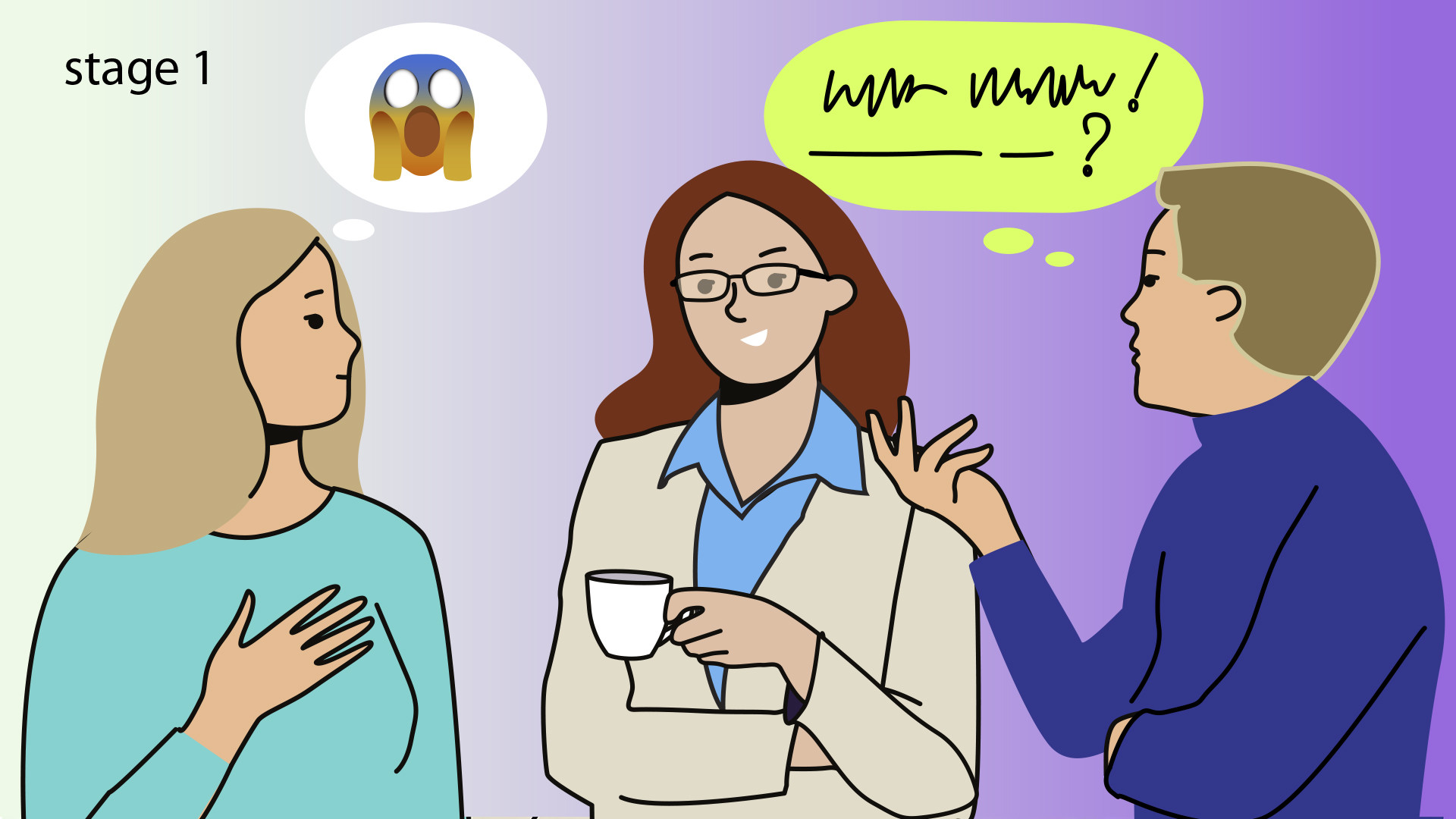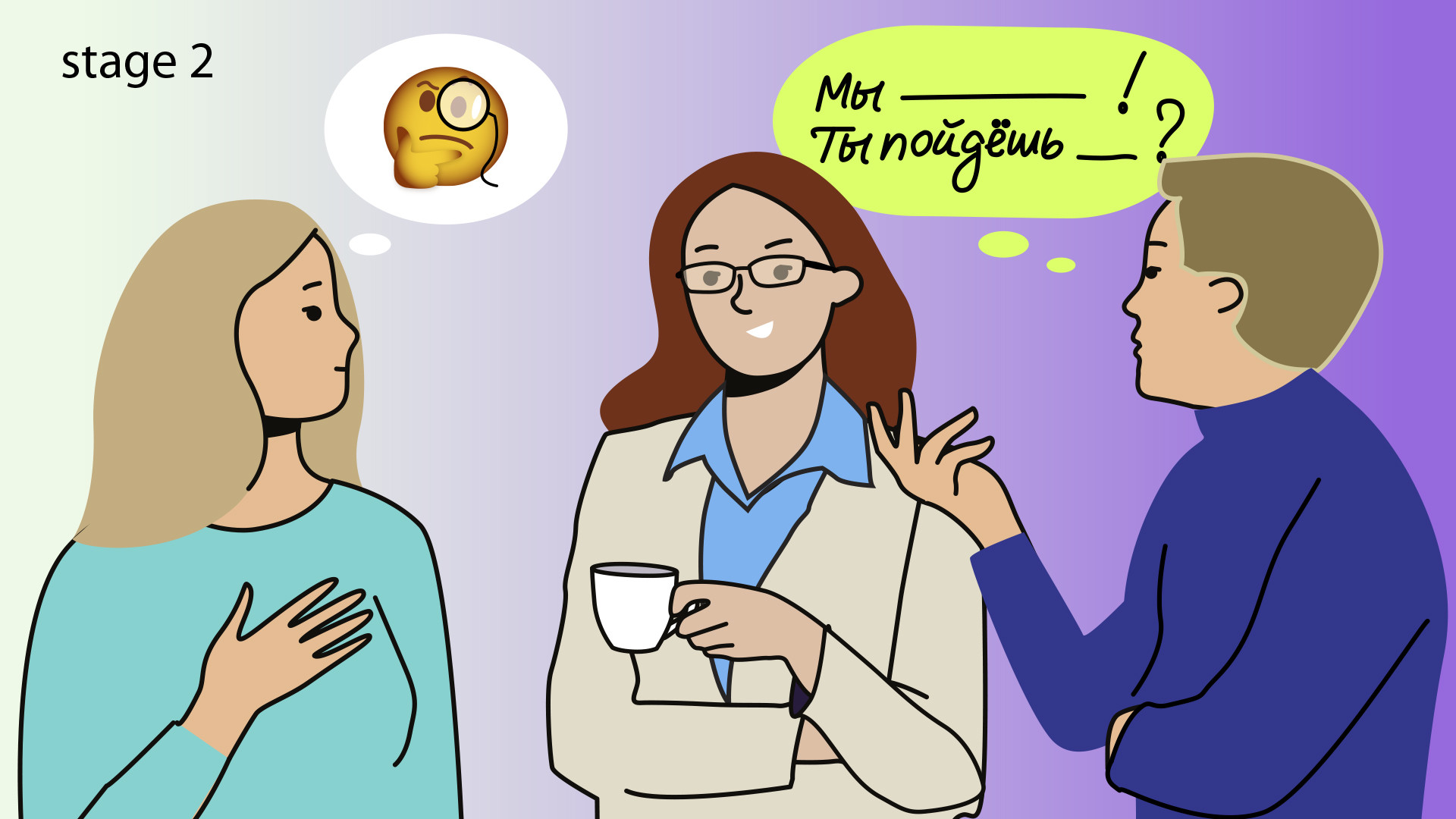What Conclusion Can You Draw About The Speaker's Character?
Each person interprets foreign speech differently, but most tend to agree that the Russian language is among the near difficult to comprehend!
There are enough of YouTube videos of foreign students sharing their stance on peculiar Russian words and how they sound: Some think Russian is harsh, others merits that it'southward very melodic and has a song-like band to it (about childlike, owing to the many soft consonants). In short, all students of Russian, more than or less, share the view that "All Russians speak and so quickly and unclearly, they could actually utilize a subtitle runway below [their mouths]." Alas, until engineering science exists that can beam translations straight into our brains, nosotros'll have to brand do with this lesson, where nosotros discuss the difficulties you'll meet in understanding Russian speech and how to tackle them.
ane. Unfixed accents and reductions
Leaving aside complex phrases for the time being, permit'southward focus at the level of the give-and-take. [Éta dóm. Éta stól. A éta kót] - says the instructor, showing the drawing.

The pupil dutifully repeats the singular nominative form and believes in a brilliant future. [Éta damá. Éta stalý. A éta katý], says the teacher, transitioning to the next photo - and the student's hopes are dashed. "Nosotros've only but created the plural form, and suddenly, [A] becomes [O] in what is practically the same word?" the student might exclaim in their native language. "Reduction," the teacher replies philosophically.

It's true, the [O] sound is merely pronounced in the accented position and equally [A] in all other cases, sometimes even as a short [Ы] - for instance, [shykalát] 🍫. And if ane studies Russian only by ear, without using the graphical image of the word, they would need to work really difficult to understand why [kót] 🐱 and [katý] 🐱🐱 – are the same animal, only a unlike quantity of them.
What conclusions can we depict from the story? Well, fifty-fifty if yous love studying languages by listening to simple phrases in conversation, don't forget to supplement that with reading: In Russian, the graphical prototype of the discussion can sometimes help unite entirely dissimilar-sounding phorms into a single prototype - such equally Nom. sg. [dóm] 🏠 и Nom. pl. [damá] 🏠🏠.
2. Tempo and articulation
How does an understanding of strange strange speech evolve? First, there is a wave of horror at the stream of unfamiliar sounds, and then, gradually, the cacophony gives way to particular forms the brain can decode and recognize.

Phase i: OMG! What are they maxim?!

Stage 2: "We... You go..." But where, when, what for?
The situation is most easily understood through context: Say, you lot're at a hotel, booking a number. Words from conversations you might accept at the doctor's office or while drinking with Russians are not likely to pop up. Information technology's useful to pay attention to the gestures and expressions of the speakers, as well as their intonation and pauses, which mark the kickoff and cease of a sentence. Russian is slightly different from a number of other languages in this respect.
Simply, at that place'south ane "just". The tempo. It's not important how much research you've done on varying language speeds - Russian is notwithstanding fast. And rarely clear. Oft, the initiative joint good by Russians gets in the style of agreement fifty-fifty the simplest phrases. Russians can barely open their mouths and not even move their lips and still understand each other perfectly.
There'south merely one tip here: If you're just taking your first steps, don't torture yourself - do listen to educational audio materials. Select thematically appealing programs and shows on YouTube, where the presenters take care to speak with clarity. And, of grade, don't forget the subtitles - there are enough of channels around that offer them.
One interesting fact is how foreign students often claim that older generations of Russians are easier to understand. Mayhap, one should also encounter their new friends' parents in the process? 🤔
iii. Some quirks to do with pronunciation
For the final practical office, allow's await at some examples of oft used words that sound different in conversation than they practice when you write them out (or worse, they're even written differently occasionally, if communication is informal).


- Where are you? When are y'all coming?
- On my way now.

- How much for the cab ride?
- A 1000.
- How much?!

- I'll get you back your money today
- Just don't prevarication! I know who I'm dealing with...
- What? I'm being serious!
Knowing the conversational forms of pronunciation makes it noticeably easier for one to understand spontaneous spoken language. However, unless the language has almost become second nature, it's all the same best to employ the literary course, just in case.
Practise is what'due south needed to beginning to really understand people, just the skillful news is that the vast territory of Russia is surprisingly uniform when it comes to how people sound (this makes the country different from much of Europe). Then, when y'all're planning a trip across the groovy Transsiberian Railroad, yous won't notice much difference between Moscow, Ekaterinburg, Perm, Omsk, Krasnoyarsk - or fifty-fifty Ulan Ude!
Natalia Kikilo is the assistant professor at the Found of Russian Language at RUDN.
If using any of Russia Beyond's content, partly or in full, always provide an active hyperlink to the original fabric.
Go the week'due south best stories directly to your inbox
Source: https://www.rbth.com/education/334206-learn-to-understand-russian-speech
Posted by: houckearon1950.blogspot.com


0 Response to "What Conclusion Can You Draw About The Speaker's Character?"
Post a Comment